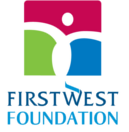Cultivating Communities through Food
According to Victoria Foundation’s 2014 Vital Signs Report, 1 in 7 people “eat less, because there is not enough money for food”. LifeCycles Project Society is looking to assist 800 people from Victoria and Saanich in gaining the knowledge, skills and resources they need to access or grow local food through the LifeCycles Growing Communities project.
First West Foundation is pleased to provide LifeCycles with an Island Savings Community Endowment grant of $5,000 to ensure they can continue to provide the community with the knowledge, skills and resources necessary to promote a healthy diet.
“Everyone deserves access to healthy and local food,” says Seline Kutan, executive director of the First West Foundation. “We are happy to offer support to LifeCycles so they can continue to provide the community with the resources they need to access a healthy diet.”
Running from May to October 2016, the Growing Communities project provided services in partnership with BC Housing, Greater Victoria Public Library, Mustard Seed, Shelbourne Community Kitchen, Victoria Sexual Assault Center, City of Victoria and Municipality of Saanich.
As LifeCycles works with a number of organizations with connections to those who are in need of the resources Growing Communities can provide, they often do not need to recruit participants to their workshops.
“We meet food insecure people where they are: at food banks, subsidized housing communities, libraries, community gardens and parks and provide free workshops, resources and education or food,” says Maurita Prato, executive director of LifeCyles.
Through the project, LifeCycles provided 80 hands-on workshops where they taught hands-on food growing, seed saving, harvesting, and food preparation and preservation skills to 800 people in Victoria and Saanich. With these workshops, LifeCycles aimed to strengthen food skill capacity, and access to local food and build a sense of empowerment and decreased feelings of isolation among participants.
“We focus on food justice, where participants gain food skills or access to local food so that they feel more control over their food and food choices,” says Prato. “Our goal is for our participants to have fun, care about what they eat and where their food comes from, and feel empowered around food cultivation and food choices.”
About LifeCycles Project Society
LifeCycles Project Society cultivates community health by connecting people, the food they eat and the land it comes from. Through their programs, LifeCycles provides vulnerable and food insecure communities with the knowledge, skills and resources they need to access or grow their own food in a way that fosters biodiversity and enhances urban environments. Last year, in 2015, LifeCycles was able to reach 28,783 people through their programs and outreach.





